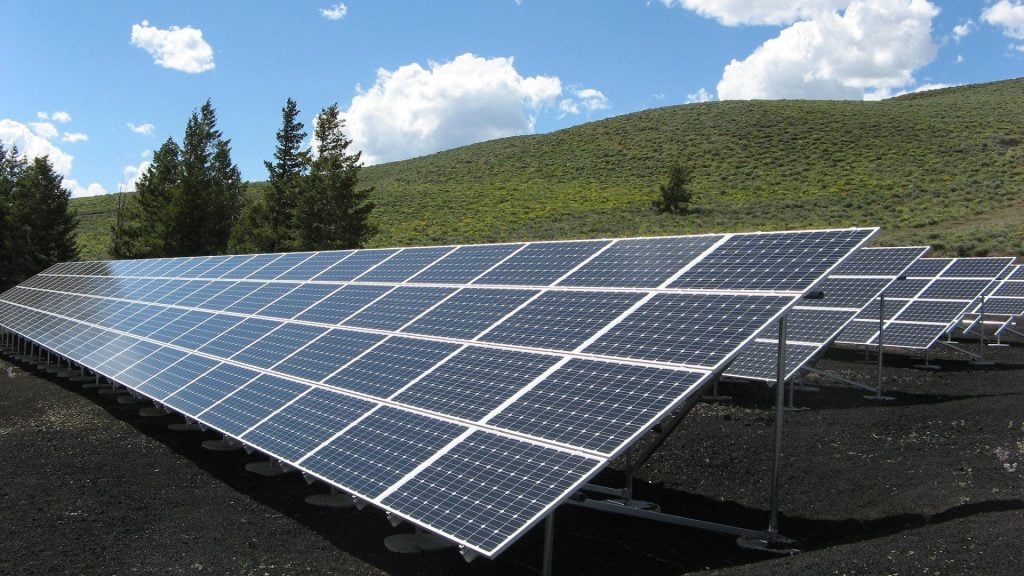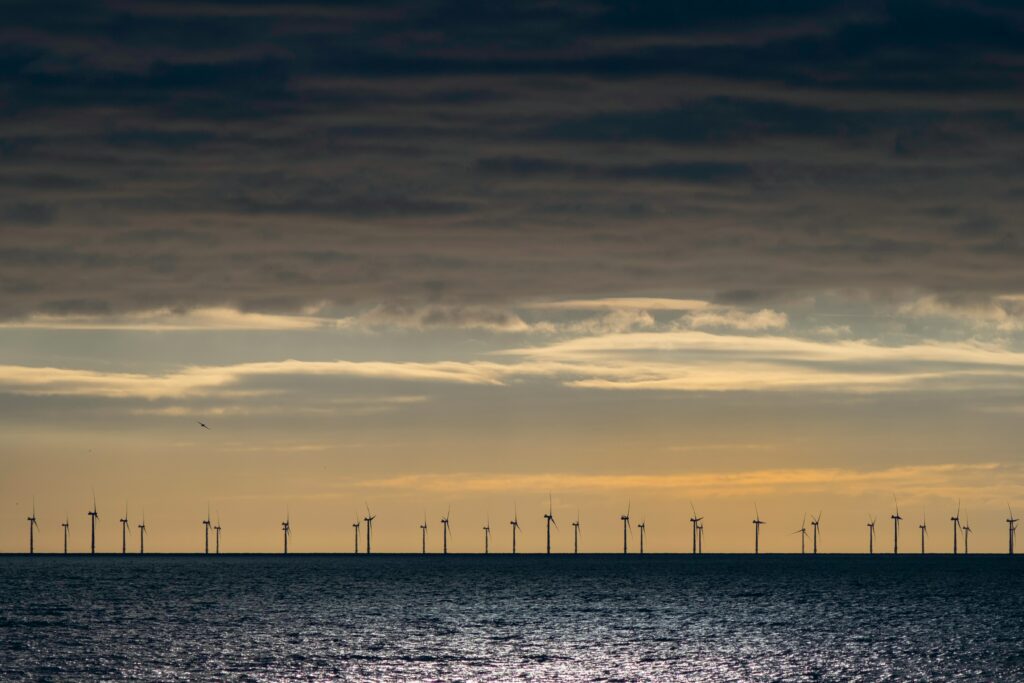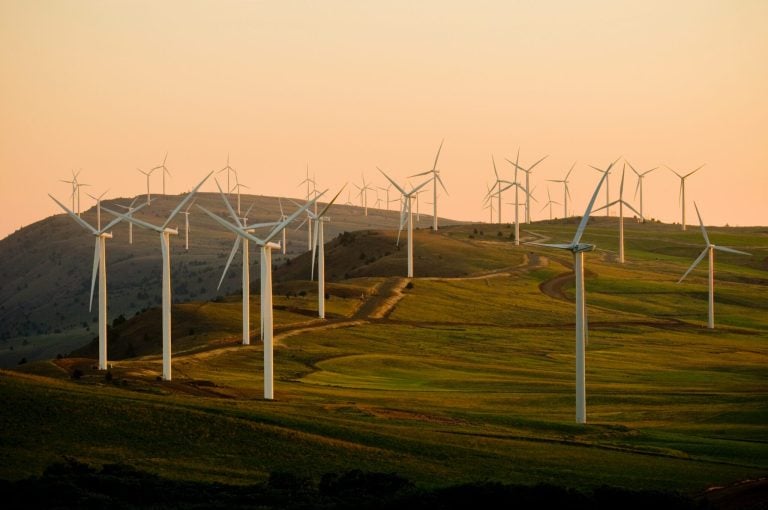The market for renewable energy in Latin America recovered in 2021, after suffering at the hands of the global pandemic during 2020, according to a newly released report.

Driven in part by major green energy projects in Brazil and Chile, wind and solar capacity in the region reportedly grew by 50% in 2021, with renewable energy in Latin America expected to continue to expand as governments seek to hit clean energy targets.
According to the outlets reporting on the “Latin America Market Outlook,” published by Bloomberg New Energy Finance (NEF), in total 17.5 GW of wind and solar energy capacity was added throughout the region in 2021, with US $18 billion invested into renewable energy in Latin America.
SEE ALSO: A PEO in Latin America offers rapid international expansion
That report highlighted how wind and solar photovoltaic (PV) energy sources now account for more than 10% of the energy produced in Argentina, Brazil, Chile, and Mexico.
“Brazil was the main market responsible for the growth of renewables in Latin America last year. We saw a boom in small-scale PV activity, but utility-scale wind and PV projects also reached record numbers,” Natalia Castilhos Rypl, lead author of the report, was reported as saying. “Chile also had a great year, as the country achieved record wind and solar net additions.”
Brazil led the way in terms of renewable energy uptake, with onshore wind growing by 3.6 GW , large-scale PV growing by 1.7 GW, and small-scale PV growing by 5 GW, for a total increase of 10.3 GW – effectively doubling renewable energy production compared to 2020.
According to the report, that pattern was driven by the fact that 65% of investment in renewable energy in Latin America was concentrated in Brazil, with Chile being the market that attracted the second-most investment.
That reportedly helped clean energy expansion in Chile reach record highs, with more than 800 MW of wind and 1.4 GW of solar added during 2021. That saw solar become the second most important energy source in Chile – accounting for 18% of total energy supply, and only surpassed by hydroelectric (21%).
“Chile has a competitive and rapidly evolving renewable energy market that could adapt well to the conditions imposed by the pandemic,” Dario Morales, research director at the Chilean Renewable Energy Association (ACERA), was reported as saying. “We are experiencing a profound transformation of our energy mix thanks to the abandonment of coal and the expansion of renewables.”
Growth of renewable energy in Latin America not reflected in all major markets
Although Brazil and Chile posted impressive growth to drive the market for renewable energy in Latin America, similar results were not seen in Argentina and Mexico. According to the report, that was due to a combination of economic conditions and regulatory changes in both countries – the second and third largest economies in Latin America by GDP.
That saw wind and solar capacity in Mexico remain essentially unchanged between 2020 and 2021, with an energy reform pushed by President Andres Manuel Lopez Obrador rejected by Mexico’s congress being a key factor.
As a result, fossil fuels continue to be the dominant energy source in the North American country, reportedly accounting for 66% of supply. A target of generating 35% of energy from renewable sources by 2024 was pushed back until 2030.
Economic conditions in Argentina, meanwhile, represented an obstacle to investment, according to the report. So while 1 GW of solar and wind energy capacity were added in 2021, around 900 MW of energy generated by fossil fuels was also added.
Argentina, unlike Mexico, has made progress towards a goal of expanding energy generated from renewable sources, with the country aiming to generate 20% of its energy from green sources by 2025.
However, the BloombergNEF analysis suggested that the country’s clean energy capacity would not expand fast enough to meet that target, with 90 approved renewable energy projects reportedly stalled due to the economic situation.
“Clean energy investment in Argentina has been falling drastically since 2018, however, we still saw a decent amount of wind farms commissioned last year, as these had already secured financing,” Castilhos Rypl reportedly said.
Other markets to contribute more to the growth of renewable energy in Latin America
BloombergNEF reports that it expects Brazil to continue to be the regional leader in terms of renewable energy in Latin America, while solar power is due to become Chile’s most significant energy source by the end of 2022.

The report also notes that Colombia is in line for a multi-year renewable energy boom, with 4 GWs set to be added in the next four years. That will significantly expand the share of Colombia’s energy derived from clean sources, which currently sits at 7%.
Earlier this year, plans were announced for a major wind power project off the country’s Caribbean coast, with capacity to generate 200 MW of power.
“There is a long way to go, but in the future we will have a much stronger role for renewables in our energy mix,” Germán Corredor, head of SER Colombia, the country’s renewable energy association, was reported as saying. “Solar and wind projects green-lighted in 2019 will come online this year, while construction of those allocated last year will begin.”
However, BloombergNEF warns that for the market for renewable energy in Latin America to reach its potential, governments in the region will need to work hard to guarantee that energy grids can keep up with developments – with clean power demanding significant investment in infrastructure in order to grow.
That will be crucial to the region meeting targets set under the Renewables in Latin America and the Caribbean (RELAC) initiative, under which 15 countries from across the region established the aim of generating 70% of energy from renewable sources by 2030.
Signatories include Bolivia, Chile, Colombia, Costa Rica, the Dominican Republic, Ecuador, Guatemala, Haiti, Honduras, Paraguay, Peru, and Uruguay, with a recent report highlighting that Costa Rica and Uruguay had already exceeded that target.
Biz Latin Hub can assist you doing business in Latin America
At Biz Latin Hub, we provide integrated market entry and back office services throughout Latin America and the Caribbean, with offices in more than a dozen markets throughout the region and trusted partners in others.
Our portfolio includes company formation, accounting & taxation, legal services, and hiring & PEO, among others, so whatever your plans are, we can support you. Our unrivaled presence also means we are ideally placed to support multi-jurisdiction market entries and cross-border operations.
Contact us today to find out more about how we can assist you.
If you found this article on renewable energy in Latin America of interest, check out the rest of our coverage from across the region. Or read about our team and expert authors.






